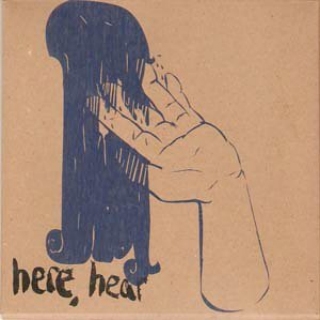|
1978 - San Diego: |
|
I'd just come out the other side of a relationship that blew up |
|
I was angry, and disillusioned, and ultimately self-destructive. |
|
I'd lost everything I believed in |
|
I was as utterly, completely alone as I've ever been. |
|
So I began going on walks. |
|
I started taking late-night walks around the San Diego suburb I was living in at the time. |
|
I'd start walking early evening, and come back close to midnight, sometimes later |
|
Walking and thinking and chewing over what had gone wrong with my life. |
|
One night, at Fourth and E Streets, I got mugged and beaten by a street gang |
|
Sent me to the hospital with serious intimations of mortality. |
|
When the ER techs asked what my religion was, I refused to answer. |
|
I made my private peace with the universe, |
|
Content with whatever was going to happen, live or die. |
|
Then something happened. |
|
I got angry. |
|
I got angry because I still had stories to tell. |
|
So I fought back. |
|
It took two months to fully recover. |
|
But two things came out of that incident. |
|
First: I have no fear of death. None whatsoever. |
|
Second: As soon as I was well enough, I started walking again. |
|
Sometimes until 3 or 4 in the morning, |
|
Through parts of town that made even street people nervous. |
|
When people asked what I was doing out there that late at night, |
|
the only answer I could give was, "I'm looking for something." |
|
So I kept walking through some of the most dangerous parts of San Diego, |
|
before it got cleaned up, |
|
When it was still home to hookers and drunks and gangs |
|
Finally, one afternoon, I came to the same areas I walked through at night |
|
And I was struck by the dichotomy between that corner at night, |
|
And the very same corner during the day. |
|
In the daylight, there were businessmen and kids and clerks, |
|
Eager to get home to dinner and TV and family. |
|
Then, later, came the night shift - the lost people |
|
emerging from shadows and beds of pain to walk the same streets |
|
In search of fixes, money, and bars, |
|
Gradually fading away with the dawn. |
|
Two totally different worlds, |
|
Sharing nothing but longitude and latitude. |
|
There was the nation in the day, and the nation at night, |
|
Existing side by side but each fleeing the other; |
|
A daylight nation and a midnight nation. |
|
I saw a country bifurcated by more than just the presence and absence of light, |
|
But by lives cast aside and lost and uncared for; |
|
The walked away and the thrown-away on one side, and on the other, |
|
Those who pretended not to see them, because not seeing is easier. |
|
And I saw someone forced to walk both sides of the metaphor, |
|
To learn that the greatest cruelty is our casual blindness to the despair of others, |
|
That there but for the grace of whatever god you subscribe to goes any of us. |
|
And finally, I realized that I had found what I was looking for, |
|
Without ever being quite sure what it was. |
|
I found a story that would make my own life make sense again. |
|
This story. |
|
I still take long walks |
|
And I still stop and talk to the people who stand at the corner |
|
And wait for something to happen to them, |
|
Who wait for money to fall into a hat or a cup, |
|
Who wait for someone to recognize their pain. |
|
Because the line between the midnight nation |
|
And the place where I sit right now, |
|
Writing these words, is thin and ephemeral and can be crossed in an instant. |
|
Because the road to the midnight nation can be erased only through compassion. |
|
I found my story, this story, on a hazy afternoon in 1978. |
|
Now it's yours. |
|
The keys to the midnight nation are in your hands. |
|
What you do with them is up to you. |
|
J. Michael Straczynski. |
|
Sherman Oaks, CA |
|
July 21st, 2002. |
